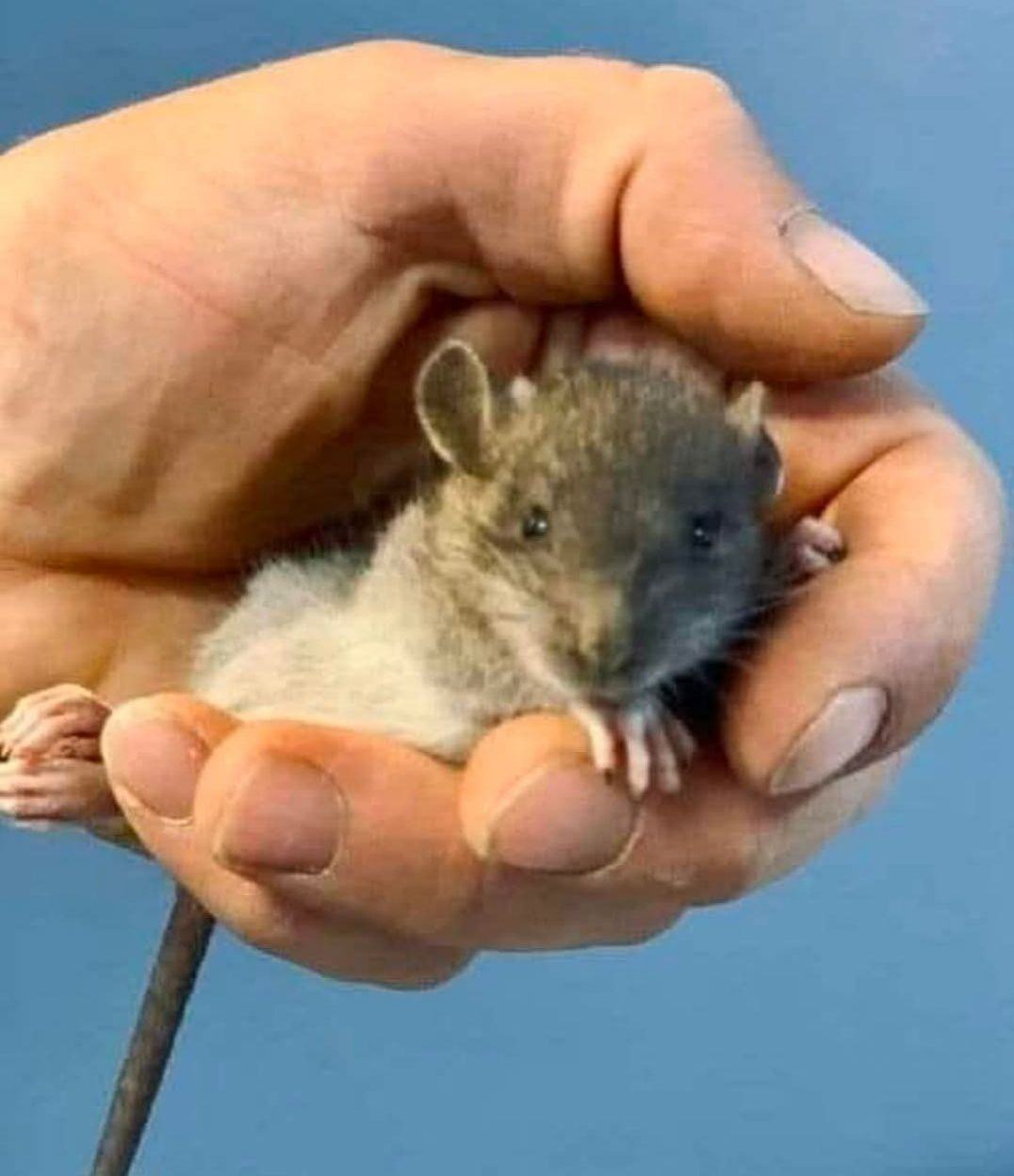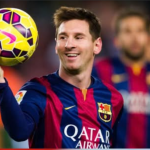“A Hand to Hold on the Way Out”: On Kindness, Loss, and the Unseen Acts of Love


“A Hand to Hold on the Way Out”: On Kindness, Loss, and the Unseen Acts of Love
Every now and then, life offers us a moment so fragile, so tender, it etches itself into our memory forever. A dying creature clinging to your hand. The last breath of something small that trusted you. The helpless ache of doing everything you could — and still losing.
This is the story of a dying baby rat. But more than that, it is a reflection on what it means to love in a world that so often punishes kindness. It’s about the quiet grief of those who rescue, the fatigue of empathy, and the unbearable burden of hope in a world that doesn’t always reward it.
In a time when anger and apathy seem to reign, this story reminds us of the sacred act of staying — of simply holding space for a life as it slips away.
The Moment
It began like any ordinary morning. Chores, movement, routine. But life has a cruel way of placing the extraordinary within the mundane — of threading deep meaning into small things. On the ground, amid the day’s dust and duties, lay a baby rat. Still. Unmoving. Cold.
For anyone who’s worked in animal rescue or simply spent time outdoors, finding a dead or dying animal isn’t unusual. It’s part of the cycle. Nature moves quickly. Life falls through the cracks.
But this wasn’t just another loss.
As your hand reached down — perhaps expecting to gently dispose of a tiny body — she blinked. Her frail arms, chilled and weak, reached out and wrapped around your finger.
She held on.
Not biting. Not squeaking. Just clinging. As if to say, please, don’t leave me.
The Response of the Compassionate
Here’s the thing about rescuers, caretakers, and empaths: they don’t just see a creature. They see a story. A being. A chance — however slim — to change the ending.
Most people would walk away. Some might put the creature out of its misery. Others might not notice at all. But for those who carry a heart made heavy by compassion, letting go isn’t so simple.
You didn’t reach for the tools of mercy. You reached for warmth — a heating pad and a soft blanket. You cradled the baby rat in your hands, her limbs curled around your thumb like a child seeking comfort, not knowing the world had already written her off.
You fed her. You waited. You hoped.
And for a moment — a flicker — she perked up.
Maybe this wasn’t the end. Maybe there was still something left to save.
The Tragedy of Hope
But this is where the story begins to ache in the quietest way.
As her body regained warmth and movement, her hind legs remained motionless. She dragged them behind her. An injury? A birth defect? You didn’t know. But you wanted to believe — wanted to try.
You reached for steroids, for anything that might reverse what was happening.
But by the time you returned, it was over.
She had died in your hand. Just like that. Quietly. Trustingly. Clutching the only hand that reached back when the rest of the world had already let her go.
This is the pain of the rescuer. The cruel optimism. The sacred burden of believing in things that probably won’t work — but loving anyway.
The Emotional Weight of Rescue Work
To rescue, to care, to fight for the fragile — it takes something out of you.
It’s not just about saving lives. It’s about losing them, again and again. It’s about standing in the gap between life and death and being willing to hold space for suffering.
Most people only see the outcome: the success story, the recovery, the “happy ending.” But the truth is, rescuers lose far more than they win. They bury more than they save. And each tiny loss chips away at something inside them.
The baby rat is not the first. And she won’t be the last.
But it never gets easier.
The Mother Who Walked Away
There’s something profoundly unsettling — and also deeply natural — in the observation that even the baby’s own mother had already given up. She had cut her losses. Moved on. Perhaps sensing what humans often refuse to accept: that some things cannot be saved.
In the animal world, this is survival. An act of cruel wisdom. Resources are finite. Time is short. A mother must often choose between saving one or saving the rest.
But humans are different.
We stay. We fight. We wrap dying things in warmth and whisper that it’s going to be okay, even when we know it probably won’t be.
Whether that’s wisdom or foolishness… is hard to say.
The Fatigue of Kindness
There’s an honesty in your words that so many caregivers share but seldom say aloud:
“Lately, just about everything happening everywhere makes me furious. I’ve quit writing, and quit sharing, I’m tired. Sometimes it feels like kindness is a liability, and performing it makes you a target.”
This is the secret cost of compassion: exhaustion. Burnout. Disillusionment.
In a world that often rewards cruelty with power, and apathy with convenience, to be kind is to stand against the tide. To be soft is to become a sponge for pain. To care — truly care — is to open yourself to a thousand small heartbreaks no one else will notice.
And yet you still do it.
That’s the miracle.
Holding On, Even as They Let Go
There is a sacredness in the moment of death. For many, it is a lonely exit — unnoticed, unloved, unmourned.
But this baby rat — she had a hand to hold.
She didn’t die alone, in the cold, in the dirt.
She died warm. Held. Fed. Loved, however briefly.
And even if the world says that such a life doesn’t matter, that such a gesture is wasted — you know better. Every creature deserves a dignified ending. Every living thing should be seen. Valued. Held.
You were that hand.
Hope as Resistance
It’s easy to feel like the world is crumbling. The news is relentless. Injustice multiplies. Kindness feels small, almost laughable. People mock it, exploit it, dismiss it.
But when you choose to care anyway — when you stay, when you hope, when you hold a dying baby in your hand and whisper comfort into the silence — you are resisting the pull toward numbness.
You are declaring, this still matters.
Even when it hurts. Even when it’s futile. Even when the outcome breaks your heart.
That is not weakness. That is power.
The Quiet Heroes Among Us
There are thousands of stories like this one happening every day — unseen, unshared. Rescuers and caretakers around the world choosing softness over cynicism. Spending their time, energy, money, and hearts on creatures most others ignore.
They aren’t looking for credit. In fact, many are worn down by the thanklessness of it all.
But they keep going.
Because even if they can’t save everything, they can change one moment for one life. And sometimes, that’s enough.
You are one of those people.
And this article is a thank you — not just for what you did, but for who you are.
Conclusion: You Were Hoped For
In the end, the baby rat’s story isn’t just about loss. It’s about presence. It’s about how even in her final hour, she wasn’t abandoned. She was held. She was hoped for.
And isn’t that what all of us want?
To be seen. To be held. To know that someone, somewhere, gave enough of a damn to not walk away when things got hard.
She clung to you. And you stayed.
That is the whole story.
That is the whole point.
A Final Word
To anyone reading this who has ever felt what you felt — the ache, the fatigue, the helplessness, the guilt of trying in a world that doesn’t care — this is your reminder:
You are not alone.
Your kindness is not a liability.
Your compassion is not wasted.
Your grief is not weakness.
And even when the world feels cruel and hopeless, there are still people like you — holding tiny hands, whispering love, and staying until the end.
Sometimes all we can offer is a hand to hold on the way out.
And sometimes… that is everything.











